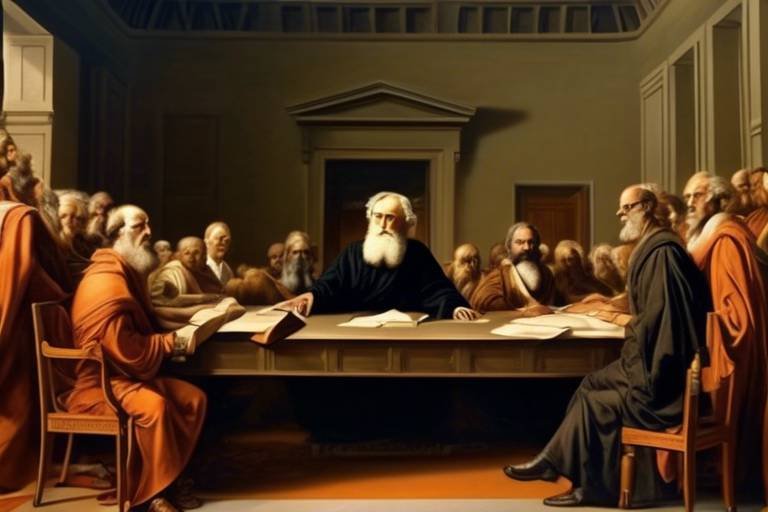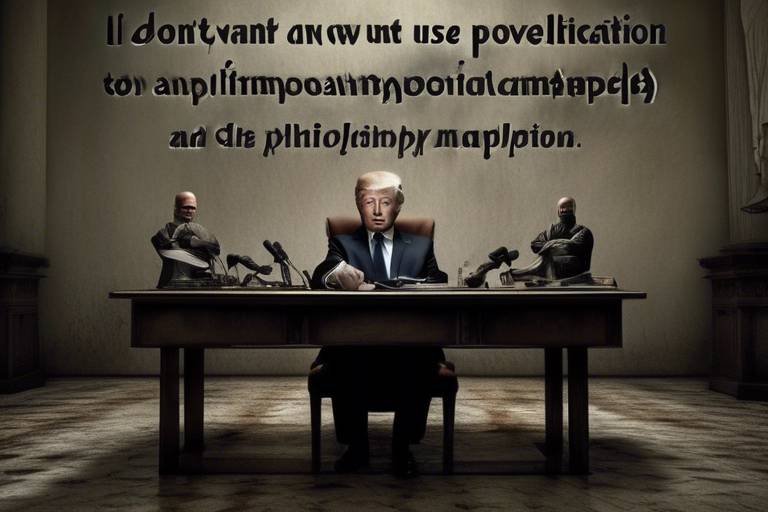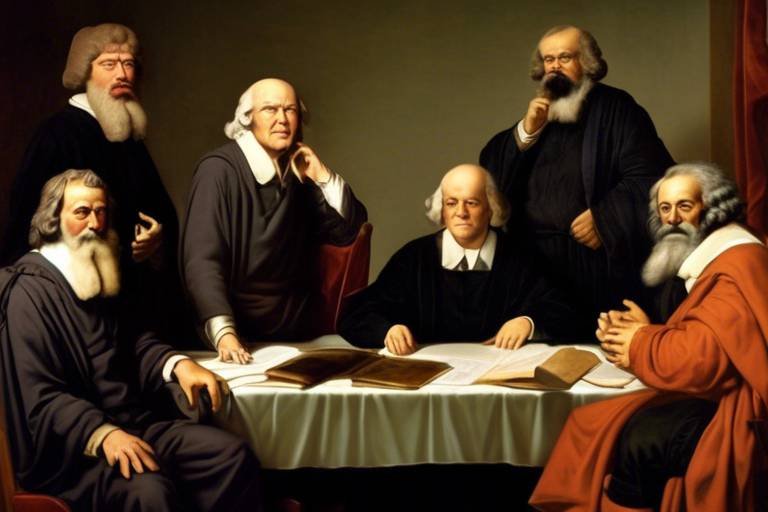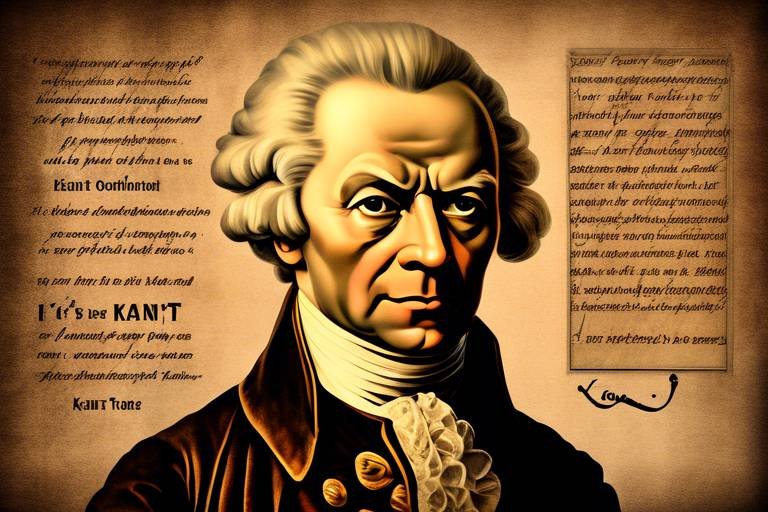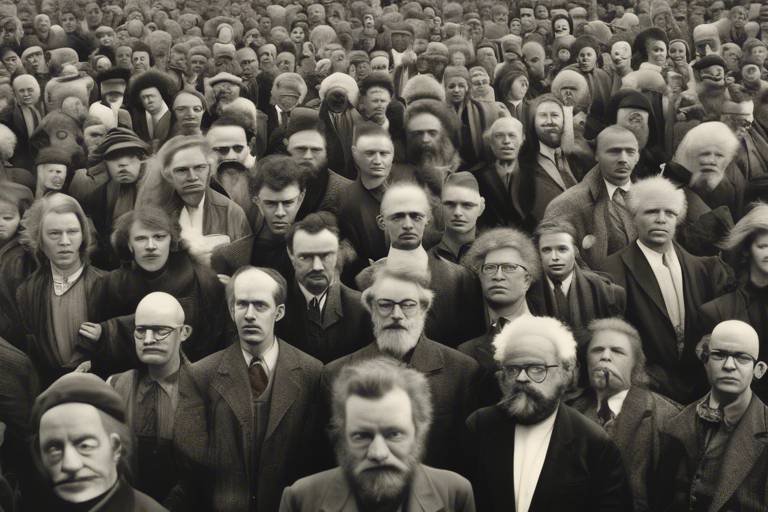The Politics of Morality - A Philosophical Experience
The intricate relationship between politics and morality has been a subject of discussion for centuries, intertwining the realms of governance and ethical considerations. At its core, the politics of morality examines how our values and beliefs shape political decisions, influencing everything from legislation to public policy. But why does this matter? The implications of intertwining morality with politics are profound, affecting not just lawmakers but also the citizens they represent. This article aims to unravel the complexities of this relationship, exploring how ethical frameworks can guide political actions and the consequences that arise from these interactions.
Imagine a world where every political decision is made solely based on ethical principles. Sounds ideal, right? However, the reality is far more complicated. Political leaders often find themselves at a crossroads, balancing the demands of their constituents with their moral compass. This balancing act can lead to a myriad of challenges, often resulting in decisions that may not align with ethical standards. Thus, the question arises: can politics ever truly be moral, or are we forever trapped in a cycle of compromise?
As we delve deeper into this philosophical experience, we will explore how historical contexts have shaped our understanding of moral politics. From ancient philosophies to modern-day debates, the evolution of political thought reveals a rich tapestry of ideas that continue to influence contemporary issues. By examining the role of ethics in political theory, we can better understand how various ethical frameworks inform political ideologies and decision-making processes.
In this exploration, we will also consider the impact of moral philosophy on legislation. Lawmakers often grapple with ethical dilemmas, and the decisions they make can have far-reaching consequences for society. Through case studies, we will highlight significant legislation shaped by moral considerations, shedding light on the intricate dance between ethics and law.
Finally, as we look to the future, we will speculate on emerging trends in the politics of morality. With the ever-changing landscape of societal values and public opinion, the relationship between morality and politics is bound to evolve. Will new ethical frameworks emerge, or will we continue to navigate the complexities of moral politics as we always have? Join us on this philosophical journey as we explore these pressing questions and more.
- What is the main focus of the article? The article explores the relationship between politics and morality, examining how ethical considerations influence political decisions.
- Why is morality important in politics? Morality is important in politics as it guides lawmakers in making decisions that reflect societal values and ethical standards.
- How does public opinion affect moral politics? Public opinion shapes the ethical discourse in politics, influencing lawmakers to consider the values and beliefs of their constituents.
- What are some examples of moral legislation? The article will discuss case studies that highlight significant laws influenced by moral considerations.

The Historical Context of Moral Politics
To truly grasp the intricate dance between politics and morality, it's essential to step back and explore the historical context that has shaped this relationship over centuries. The roots of moral politics can be traced back to ancient civilizations where leaders were often seen as moral arbiters, tasked with upholding not just laws, but also ethical standards that reflected the values of their societies. From the philosophical musings of Socrates and Plato in ancient Greece to the Enlightenment thinkers like John Locke and Jean-Jacques Rousseau, the evolution of political thought has been deeply intertwined with moral considerations.
In the early days, political power was frequently justified through divine right, where monarchs claimed their authority was sanctioned by a higher power. This perspective inherently linked morality with governance, as rulers were expected to reflect the moral values deemed sacred by their society. However, as societies evolved, so did the understanding of morality in politics. The Enlightenment era introduced a shift towards reason and individual rights, challenging the notion that morality was solely dictated by tradition or divine command.
Fast forward to the 20th century, and we see the emergence of various political ideologies, each with its own moral compass. For instance, the rise of socialism and communism proposed radical changes in how societies should be structured, emphasizing collective welfare over individual rights. In contrast, liberalism championed personal freedoms and rights, often prioritizing individual autonomy. These ideological battles were not just abstract debates; they had real-world implications that shaped policies and societal norms.
One cannot overlook the impact of significant historical events, such as the World Wars, civil rights movements, and the fight against apartheid, which highlighted the moral dilemmas faced by political leaders and societies. These events forced governments to confront their ethical responsibilities towards their citizens and the international community. The aftermath of such conflicts often led to a re-evaluation of moral principles in legislation and governance.
Today, the interplay between morality and politics continues to evolve, influenced by globalization, technology, and shifting societal values. As we navigate contemporary issues like climate change, social justice, and human rights, understanding the historical context of moral politics becomes crucial. It not only informs our current ethical debates but also helps us anticipate the future trajectory of political decision-making.
- What is the significance of morality in politics?
Morality in politics serves as a guiding principle for decision-making, influencing laws and policies that impact society. - How have historical events shaped moral politics?
Major historical events have prompted societies to re-evaluate their ethical standards and the responsibilities of their political leaders. - What role do philosophical theories play in political ethics?
Philosophical theories provide frameworks for understanding and analyzing moral dilemmas in political contexts.
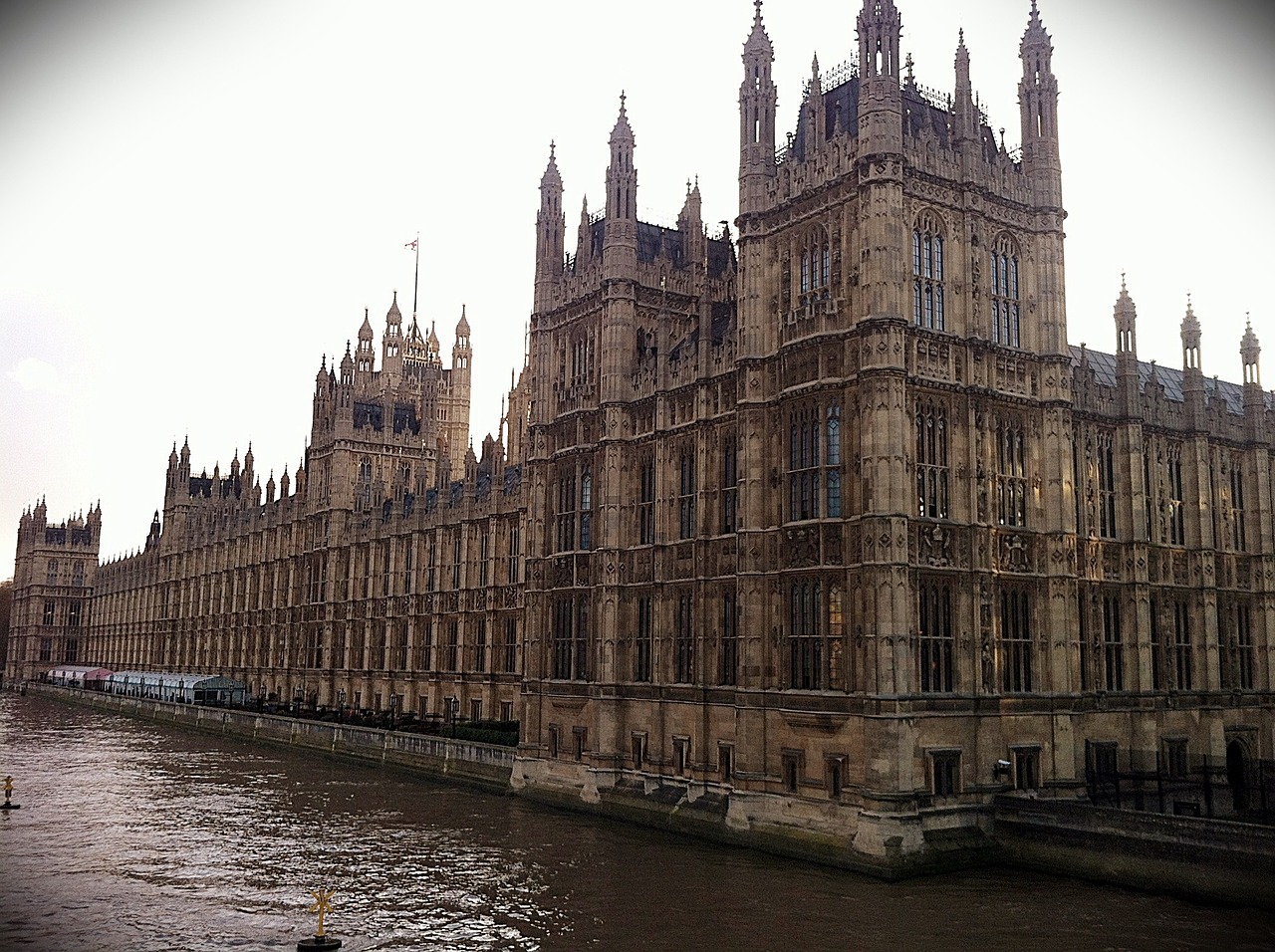
The Role of Ethics in Political Theory
When we dive into the realm of political theory, we quickly realize that ethics is not just a side note; it’s the backbone that supports the entire structure. Think of ethics as the compass guiding political leaders and policymakers through the murky waters of governance. Without it, decisions can become arbitrary, leading to chaos and injustice. So, what exactly is the role of ethics in political theory? It serves as a framework that helps us evaluate the morality of political actions, ensuring that the decisions made are not just effective but also just.
At its core, ethics in political theory can be understood through various frameworks that offer different lenses through which we can analyze political actions. For instance, some political theorists advocate for utilitarianism, which focuses on outcomes and the greater good. Others stand firmly on the ground of deontological ethics, emphasizing duties and rules regardless of the consequences. Each of these frameworks provides unique insights into how we can approach governance, and they often clash in the political arena. This tension between different ethical perspectives is what makes political discourse so rich and, at times, contentious.
Moreover, ethics influences not only the principles that govern political actions but also the very fabric of our legal systems. Laws are often reflections of the moral values held by society, and as these values evolve, so too do the laws that govern us. To illustrate this, consider the ongoing debates around issues like abortion and same-sex marriage. These topics aren’t just legal matters; they are deeply rooted in ethical considerations. Lawmakers must navigate these complex moral landscapes, weighing the rights of individuals against societal norms and values.
Furthermore, the impact of ethics in political theory extends beyond legislation. It also shapes political accountability and transparency. When politicians are held to ethical standards, they are more likely to act in the best interest of the public rather than succumbing to corruption or self-interest. This creates a healthier political environment where trust can flourish. However, the challenge lies in defining what those ethical standards should be, as they can vary widely across different cultures and societies.
As we continue to grapple with these ethical dilemmas, it’s crucial to engage in open discussions that challenge our assumptions and encourage critical thinking. After all, the political landscape is ever-changing, and so are the ethical frameworks that guide it. By fostering a culture of ethical discourse, we can ensure that our political systems remain robust and responsive to the needs of all citizens.
- What is the importance of ethics in politics? Ethics serves as a guiding principle for political actions, ensuring that decisions are made with justice and fairness in mind.
- How do different ethical frameworks influence political theory? Different frameworks, such as utilitarianism and deontological ethics, provide varying perspectives on how to evaluate political actions and their consequences.
- Can ethics change over time in politics? Yes, ethical standards can evolve as societal values change, impacting legislation and political practices.
- What role does public opinion play in shaping political ethics? Public opinion can significantly influence lawmakers, prompting them to align their actions with the moral values of their constituents.
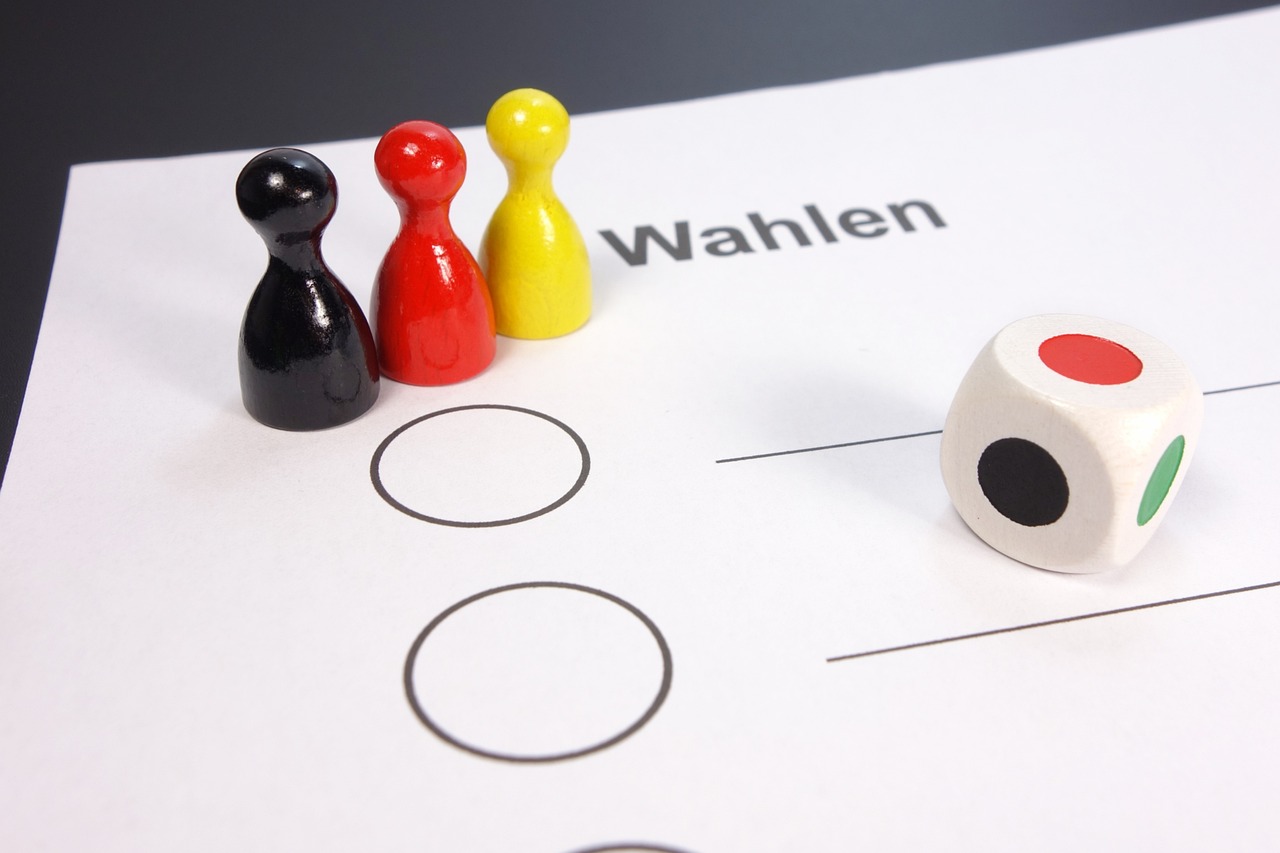
Utilitarianism and Political Decision-Making
Utilitarianism, a philosophical theory that champions the greatest good for the greatest number, has become a cornerstone in the realm of political decision-making. Imagine a compass that guides leaders through the fog of ethical dilemmas; that’s utilitarianism in action. It urges politicians to weigh the consequences of their actions, striving to maximize overall happiness while minimizing suffering. However, this approach is not without its complexities. How do we define “the greatest good”? And who gets to decide what that looks like?
In practical terms, utilitarianism can manifest in various political policies and decisions. For instance, consider a government facing the decision to implement a new healthcare policy. A utilitarian approach would analyze the expected outcomes of such a policy, aiming to ensure that the majority of citizens benefit from improved health services. This can lead to substantial improvements in public health, but it also raises questions about the minority groups who may be adversely affected. Are their rights being overlooked in the pursuit of greater happiness for the majority?
One of the key advantages of utilitarianism in political decision-making is its focus on outcomes. By prioritizing results, politicians can justify their choices based on tangible benefits. This approach is particularly appealing in democratic societies, where leaders are often held accountable for their decisions. However, critics argue that this outcome-oriented mindset can lead to morally questionable choices. For example, if a policy benefits 90% of the population but harms a vulnerable 10%, is it justifiable? This dilemma highlights a critical tension within utilitarianism: the struggle between collective welfare and individual rights.
To better understand the implications of utilitarianism in political decision-making, let’s break down its impact through a table:
| Aspect | Utilitarian Approach | Potential Issues |
|---|---|---|
| Focus | Maximizing overall happiness | Neglecting minority rights |
| Decision-Making | Outcome-based evaluations | Short-term vs. long-term effects |
| Ethical Justification | Greater good rationale | Potential moral blindness |
Moreover, utilitarianism encourages a pragmatic approach to governance, prompting leaders to consider the broader implications of their policies. It fosters a culture of accountability, where decisions can be scrutinized based on their outcomes. However, this does not mean that utilitarianism is a panacea for all political challenges. Its reliance on quantifiable metrics can sometimes oversimplify complex ethical issues, leading to decisions that may lack compassion or fail to consider the human element.
In conclusion, while utilitarianism provides a powerful framework for political decision-making, it is essential to balance its advantages with an awareness of its limitations. As we navigate the murky waters of governance, we must ask ourselves: How do we ensure that the pursuit of the greatest good does not come at the expense of the most vulnerable among us? The answers to these questions will shape the future of political ethics and the moral landscape of our societies.

Consequentialism in Policy Formulation
Consequentialism, a philosophical approach that focuses on the outcomes of actions, plays a pivotal role in the formulation of public policies. When politicians and policymakers adopt a consequentialist perspective, they prioritize the results of their decisions over the intentions or rules that guide them. This approach can lead to policies that aim for maximum benefit for the largest number of people, but it also raises complex ethical questions. For instance, how do we measure the "good" that a policy aims to achieve? And at what cost?
One of the key advantages of consequentialism in policy formulation is its practical nature. By evaluating the potential outcomes of various policy options, lawmakers can make informed decisions that are likely to yield the most favorable results. For example, consider a government deciding whether to allocate funds to healthcare or education. A consequentialist approach would involve analyzing the long-term benefits of each option, such as improved public health outcomes versus increased literacy rates, and choosing the path that maximizes overall societal well-being.
However, this focus on outcomes can lead to morally challenging dilemmas. Policymakers may find themselves in situations where the best outcome for the majority comes at the expense of a minority's rights or well-being. For instance, a policy that prioritizes economic growth might justify environmental degradation, adversely affecting communities that rely on natural resources. This raises questions about the ethical implications of sacrificing individual rights for the sake of collective good. As a result, the challenge lies in balancing the pursuit of beneficial outcomes with the need to uphold moral principles and respect individual rights.
To illustrate the complexities of consequentialism in policy formulation, consider the following table that outlines potential benefits and drawbacks:
| Aspect | Benefits | Drawbacks |
|---|---|---|
| Focus on Outcomes | Encourages data-driven decision-making, can lead to effective policies. | May overlook individual rights and ethical considerations. |
| Pragmatism | Allows for flexible responses to changing circumstances. | Can justify harmful actions if deemed beneficial for the majority. |
| Public Support | Policies aimed at the greater good can garner widespread approval. | Risk of populism, where decisions are made based solely on public opinion. |
Ultimately, while consequentialism provides a useful framework for evaluating policy options, it is essential for policymakers to remain vigilant about the ethical implications of their choices. The challenge lies not only in achieving desirable outcomes but also in ensuring that the methods used to reach those outcomes are just and equitable. This delicate balancing act is what makes the intersection of morality and politics so fascinating and, at times, contentious.
- What is consequentialism? Consequentialism is a philosophical theory that judges the rightness or wrongness of actions based on their outcomes.
- How does consequentialism influence policy formulation? It encourages policymakers to focus on the results of their decisions, aiming for the greatest good for the greatest number.
- What are the drawbacks of a consequentialist approach? It can lead to the neglect of individual rights and ethical considerations in favor of overall benefits.
- Can you provide an example of consequentialism in action? A government might prioritize funding for healthcare over education based on which option yields greater societal benefits.
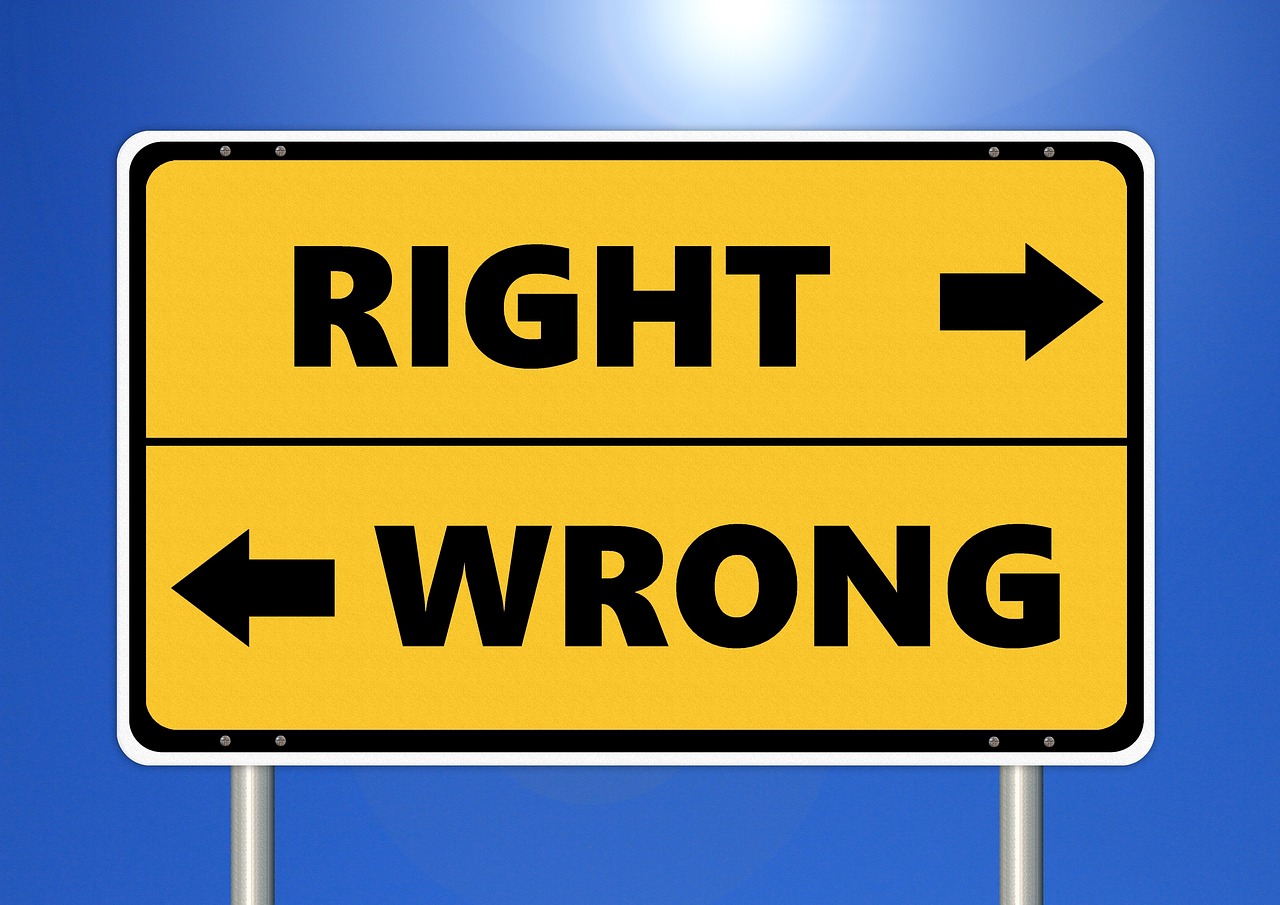
Critiques of Utilitarian Approaches
Utilitarianism, while appealing for its straightforward promise of maximizing happiness, is not without its critics. One of the most significant critiques revolves around the concept of individual rights. Critics argue that utilitarianism can lead to situations where the rights of a minority are sacrificed for the greater good. For example, if a government decides to implement a policy that benefits the majority but severely harms a small group, utilitarianism would justify this action as it promotes overall happiness. This raises a crucial question: can the happiness of the majority truly justify the suffering of a few?
Moreover, utilitarianism often struggles with the predictability of outcomes. Political decisions are rarely black and white; they exist in a complex web of social, economic, and cultural factors. The challenge lies in accurately predicting the consequences of a policy. A decision that seems beneficial in theory may lead to unintended negative consequences in practice. This unpredictability can create a moral hazard, where policymakers may prioritize short-term gains over long-term well-being.
Another critique focuses on the measurability of happiness. How do we quantify happiness? Is it through economic metrics, social indicators, or subjective well-being? This ambiguity complicates the utilitarian framework, as it becomes difficult to determine what constitutes the 'greatest good.' Different individuals and cultures may have varying definitions of happiness, making it challenging to create policies that satisfy everyone. For instance, in a diverse society, what brings joy to one group may be seen as detrimental by another.
Additionally, utilitarianism can lead to a slippery slope in moral reasoning. If we accept that the ends justify the means, where do we draw the line? This perspective can open the door to justifying ethically questionable actions, such as lying or coercion, as long as they result in a perceived net benefit. Such reasoning can erode trust in political institutions and diminish the moral fabric of society.
In summary, while utilitarianism offers a pragmatic approach to political decision-making, it faces significant challenges that cannot be overlooked. The tension between maximizing collective happiness and respecting individual rights remains a contentious issue in moral philosophy. As we navigate the complexities of governance, it is essential to consider these critiques and seek a balanced approach that honors both the collective good and individual dignity.
- What is utilitarianism? Utilitarianism is an ethical theory that suggests the best action is the one that maximizes overall happiness or utility.
- What are the main critiques of utilitarianism? The main critiques include its potential to violate individual rights, difficulties in predicting outcomes, challenges in measuring happiness, and the risk of justifying unethical actions.
- How can utilitarianism impact political decision-making? Utilitarianism can influence political decisions by encouraging policies that aim to achieve the greatest good for the greatest number, but it may overlook minority rights and ethical considerations.

Deontological Ethics and Governance
Deontological ethics, often associated with the philosopher Immanuel Kant, emphasizes the importance of duty and adherence to rules. Unlike utilitarianism, which focuses on the outcomes of actions, deontological ethics argues that certain actions are inherently right or wrong, regardless of their consequences. This perspective significantly shapes governance by promoting a framework where laws and policies are grounded in moral duties and obligations. For instance, when lawmakers draft legislation, they often consider whether the proposed laws respect individual rights and uphold societal duties, rather than merely evaluating their potential benefits or harms.
A key feature of deontological ethics is the concept of moral absolutism, which posits that some actions are universally wrong, such as lying or stealing. This principle can lead to a more consistent legal framework, as laws are based on established ethical norms rather than fluctuating public opinion or potential outcomes. However, this rigidity can also pose challenges. In a diverse society with varying moral beliefs, strict adherence to deontological principles may result in conflicts and contentious debates over what constitutes a moral duty.
To illustrate how deontological ethics influences governance, let’s consider the following table that outlines key principles and their implications for political accountability:
| Deontological Principle | Implication for Governance |
|---|---|
| Respect for Individual Rights | Legislation must protect personal freedoms and liberties. |
| Duty to Uphold Justice | Policies must be designed to ensure fairness and equality. |
| Adherence to Ethical Norms | Lawmakers are bound to follow established moral guidelines. |
This table highlights how deontological ethics can create a more principled approach to governance. However, it also raises questions about the flexibility of laws in addressing complex societal issues. For example, when faced with a crisis, such as a public health emergency, strict adherence to deontological principles may conflict with the need for swift and effective action that could save lives but might infringe on individual rights.
Moreover, the application of deontological ethics in governance often requires a balancing act. Lawmakers must navigate the tension between maintaining moral integrity and addressing the practical needs of society. This dynamic interplay can lead to significant debates in legislative bodies, as representatives grapple with their ethical responsibilities while responding to constituents' demands.
In conclusion, deontological ethics provides a critical lens through which we can examine governance and political accountability. By prioritizing moral duties, this ethical framework encourages lawmakers to consider the implications of their decisions on individual rights and societal norms. However, as political landscapes evolve, the challenge remains to adapt these principles to meet contemporary needs without compromising ethical standards.
- What is deontological ethics? Deontological ethics is a moral philosophy that emphasizes duty and adherence to rules, asserting that certain actions are inherently right or wrong regardless of their consequences.
- How does deontological ethics influence governance? It shapes laws and policies by promoting moral duties and obligations, ensuring that legislation respects individual rights and upholds justice.
- What are some challenges of applying deontological ethics in politics? The rigidity of deontological principles can lead to conflicts in a diverse society and may hinder the ability to respond flexibly to complex issues.

The Impact of Moral Philosophy on Legislation
Moral philosophy is not just an abstract concept discussed in academic circles; it is a driving force that shapes the laws we live by. When lawmakers sit down to draft legislation, they often find themselves grappling with ethical dilemmas that reflect the values and beliefs of society. This intersection of morality and law is a complex tapestry woven from diverse threads of ethical thought, cultural norms, and historical context. In essence, the laws that govern us are deeply influenced by the moral philosophies that underpin them, making it crucial to understand this relationship.
One of the most significant ways moral philosophy impacts legislation is through the establishment of legal principles that resonate with societal values. For instance, consider the debates surrounding issues such as abortion, same-sex marriage, and environmental protection. Each of these topics is steeped in moral considerations that lawmakers must navigate. In many cases, the ethical frameworks adopted by legislators—whether they lean towards utilitarianism, deontological ethics, or virtue ethics—directly influence the outcomes of these debates.
To illustrate this point, let’s look at a few key areas where moral philosophy has shaped legislation:
- Human Rights: The development of human rights laws can be traced back to moral philosophies that emphasize the inherent dignity and worth of every individual. These principles have led to the establishment of laws that protect against discrimination and promote equality.
- Environmental Legislation: As concerns about climate change grow, many laws are being enacted based on ethical considerations regarding our responsibility to future generations and the planet. This reflects a shift towards a more sustainable and morally responsible approach to governance.
- Social Welfare: The moral obligation to care for the less fortunate is a principle that drives social welfare legislation. This reflects a utilitarian approach, aiming for the greatest good by ensuring basic needs are met for all citizens.
Moreover, the role of public opinion cannot be overlooked. Lawmakers often find themselves in a tug-of-war between their moral beliefs and the values held by their constituents. For example, when public sentiment shifts dramatically on issues like drug legalization or capital punishment, lawmakers may feel compelled to adjust their legislative agendas to align with the prevailing moral attitudes of the electorate. This dynamic creates a fascinating feedback loop where moral philosophy, public opinion, and legislation continuously influence one another.
However, this relationship is not without its challenges. The clash between differing moral philosophies can lead to contentious debates that stall legislative progress. For instance, when utilitarian principles conflict with deontological ethics—where the latter emphasizes adherence to rules regardless of outcomes—lawmakers may struggle to find common ground. This can result in legislation that is either overly complex or fails to address the core ethical issues at hand.
In conclusion, the impact of moral philosophy on legislation is profound and multifaceted. As society evolves, so too will the ethical frameworks that inform our laws. Understanding this interplay is essential for anyone looking to grasp the intricacies of governance and the moral dilemmas that lawmakers face. As we move forward, it will be interesting to see how emerging moral philosophies will shape future legislation and societal norms.
- How does moral philosophy influence specific laws? Moral philosophy provides the ethical foundation for laws, guiding lawmakers in their decisions based on societal values and ethical principles.
- What are some examples of moral dilemmas in legislation? Issues like abortion, drug legalization, and capital punishment often present moral dilemmas that lawmakers must navigate.
- Can public opinion affect moral legislation? Absolutely! Public sentiment plays a crucial role in shaping laws, as lawmakers often respond to the values and beliefs of their constituents.
- What happens when moral philosophies conflict in legislation? Conflicting moral philosophies can lead to contentious debates and may result in complex or stalled legislation.

Case Studies in Moral Legislation
When we delve into the realm of moral legislation, it becomes evident that real-world examples can illuminate the complex interplay between ethics and law. Throughout history, there have been pivotal cases where moral considerations have not only influenced legislation but have also sparked intense societal debates. Let's explore some notable instances that highlight this relationship.
One of the most significant examples is the legalization of same-sex marriage. In many countries, this issue was not merely a legal matter but a profound moral question. Advocates argued that allowing same-sex couples to marry was a matter of human rights and equality, while opponents often cited religious or traditional beliefs. The eventual legal recognition of same-sex marriage in numerous jurisdictions marked a turning point, illustrating how evolving moral perspectives can reshape laws. The landmark case of Obergefell v. Hodges in the United States is a prime example, where the Supreme Court ruled that same-sex marriage is a constitutional right, reflecting changing societal values.
Another compelling case is the debate surrounding abortion legislation. This contentious issue often pits personal moral beliefs against legislative action. In many regions, laws governing abortion have been influenced by ethical theories, including the rights of the unborn versus the rights of women to make choices about their own bodies. For instance, in countries like Ireland, the recent repeal of the Eighth Amendment, which heavily restricted abortion, was driven by a shift in public opinion and moral philosophy towards a more liberal stance on women's rights and bodily autonomy.
To further illustrate the impact of moral philosophy on legislation, consider the ongoing discussions around environmental regulations. As climate change becomes an increasingly pressing issue, lawmakers are faced with ethical dilemmas regarding the balance between economic growth and environmental protection. The introduction of laws aimed at reducing carbon emissions often stems from a moral obligation to protect the planet for future generations. Countries like Sweden have implemented stringent environmental policies, showcasing how ethical considerations can lead to progressive legislative frameworks.
These case studies reveal that moral legislation is not merely about the laws themselves but also about the societal values and ethical frameworks that inform them. It raises important questions: How do we define morality in a diverse society? What role should public opinion play in shaping laws? As we navigate these complex issues, it becomes clear that the relationship between morality and legislation is both dynamic and essential for a just society.
| Case Study | Year | Moral Considerations | Outcome |
|---|---|---|---|
| Obergefell v. Hodges | 2015 | Equality and Human Rights | Legalization of Same-Sex Marriage |
| Repeal of Eighth Amendment | 2018 | Women's Rights and Bodily Autonomy | Legalization of Abortion |
| Sweden's Environmental Policies | Various (ongoing) | Environmental Protection | Stringent Carbon Emission Laws |
As we reflect on these cases, it becomes evident that moral legislation is a reflection of our evolving ethical standards and societal values. The interplay between morality and law is not static; it evolves as we confront new challenges and reassess our collective conscience.
- What is moral legislation? Moral legislation refers to laws that are influenced by societal moral beliefs and ethical considerations.
- How do case studies illustrate moral legislation? Case studies provide concrete examples of how moral perspectives shape laws and public policy.
- Why is public opinion important in moral legislation? Public opinion reflects the values and beliefs of society, which can significantly influence lawmakers and the legislative process.
- Can moral legislation change over time? Yes, as societal values evolve, so too can the laws that govern them, reflecting new ethical standards and moral understandings.

The Role of Public Opinion in Moral Politics
Public opinion serves as a formidable force in the realm of moral politics, acting as both a mirror and a catalyst for ethical discourse within society. It is fascinating to observe how the collective beliefs and values of the populace can shape political agendas and influence the decisions of lawmakers. Imagine public opinion as a massive river, flowing with the currents of societal values, beliefs, and emotions, sometimes calm and steady, other times turbulent and unpredictable. This river can either nourish the political landscape or erode the foundations of governance, depending on how it is managed.
One of the most compelling aspects of public opinion is its ability to shift rapidly in response to events, media coverage, and changing societal norms. For instance, consider how public attitudes towards issues like same-sex marriage or climate change have transformed over the years. Initially met with resistance, these topics have gained significant traction, illustrating how public sentiment can drive legislative change. Lawmakers often find themselves in a delicate dance, balancing their own beliefs with the demands of their constituents. They must navigate the waters of public opinion carefully, as ignoring it can lead to political peril.
Moreover, the role of social media in shaping public opinion cannot be overstated. Platforms like Twitter, Facebook, and Instagram have become arenas for ethical debates, where individuals can voice their opinions and rally support for various causes. This digital landscape has democratized the conversation, allowing voices that were once marginalized to gain prominence. However, it also presents challenges, as misinformation can spread like wildfire, muddying the waters of public discourse. The question arises: how can we ensure that public opinion is informed and constructive, rather than divisive and chaotic?
In this dynamic environment, lawmakers must be attuned to the pulse of public sentiment. They often conduct surveys and polls to gauge the opinions of their constituents, seeking to align their policies with the prevailing moral attitudes. For example, a recent poll might reveal that a majority of citizens support stricter gun control laws. In response, legislators may feel compelled to introduce new legislation that reflects this moral imperative, aiming to resonate with the values of their voters.
However, it is crucial to recognize that public opinion is not monolithic. Within any given society, there exists a diverse array of perspectives, often leading to heated debates. This plurality can complicate the legislative process, as lawmakers strive to represent a constituency that may hold conflicting views on moral issues. For instance, while some may advocate for increased environmental protections, others may prioritize economic growth, creating a tension that legislators must navigate.
Ultimately, the interplay between public opinion and moral politics raises important questions about the nature of democracy itself. Should elected officials prioritize the will of the majority, or should they uphold ethical standards that may not align with popular sentiment? This dilemma is reminiscent of the age-old debate between utilitarianism, which advocates for the greatest good for the greatest number, and deontological ethics, which emphasizes duty and moral principles. As society evolves, so too will the relationship between public opinion and moral politics, leading to new challenges and opportunities for ethical governance.
- How does public opinion influence political decision-making? Public opinion shapes political agendas, as lawmakers often tailor their policies to reflect the values and beliefs of their constituents.
- What role does social media play in shaping public opinion? Social media platforms allow individuals to voice their opinions, share information, and mobilize support for various causes, significantly impacting ethical discourse.
- Can public opinion be misleading? Yes, misinformation can spread rapidly on social media, leading to distorted perceptions of issues and potentially harmful political decisions.
- How do lawmakers balance conflicting public opinions? Legislators must navigate diverse perspectives within their constituencies, often seeking compromise solutions that reflect a broader consensus.

The Future of Morality in Politics
The relationship between morality and politics is on the cusp of a significant transformation. As society evolves, so too do our ethical frameworks and the ways in which they interact with political decision-making. Today, we find ourselves at a crossroads where traditional moral philosophies are being challenged by emerging social norms, technological advancements, and global interconnectedness. This evolution raises an important question: how will these changes shape the political landscape of tomorrow?
One of the most notable trends is the growing emphasis on transparency and accountability. In an age where information is readily available at our fingertips, citizens are demanding more from their leaders. The expectation is that politicians not only uphold ethical standards but also communicate their decisions and the moral reasoning behind them. This shift could lead to a new political culture where ethical considerations are not just an afterthought but a fundamental component of governance.
Moreover, the rise of social media has transformed the way political dialogue occurs. Platforms like Twitter and Facebook have become battlegrounds for moral debates, allowing citizens to voice their opinions and hold politicians accountable in real-time. This phenomenon is creating a more informed electorate that is not afraid to challenge the status quo. As a result, we may see a future where political leaders must navigate a landscape that is increasingly influenced by public sentiment and ethical considerations.
Additionally, the global nature of contemporary issues—such as climate change, human rights, and economic inequality—demands a reevaluation of moral priorities. Political decisions are no longer confined to national borders; they have far-reaching implications that affect the global community. This interconnectedness calls for a more holistic approach to political morality, where ethical frameworks must consider not just local but also international consequences. For instance, policies that prioritize environmental sustainability may gain traction as voters recognize their moral obligation to future generations.
As we look to the future, we can anticipate the emergence of new ethical frameworks that blend traditional moral theories with contemporary realities. For example, the concept of care ethics, which emphasizes relationships and responsibilities, may gain prominence as societies strive for more compassionate governance. This approach could reshape how policies are formulated, focusing on the well-being of individuals and communities rather than solely on economic metrics.
In conclusion, the future of morality in politics is not a predetermined path but a dynamic interplay of evolving values, technological advancements, and societal demands. As we navigate this uncharted territory, it is essential for both politicians and citizens to engage in ongoing discussions about ethical principles and their implications for governance. Only then can we hope to create a political landscape that reflects our collective moral aspirations.
- What role does public opinion play in shaping political morality? Public opinion is a powerful force that can influence lawmakers and ethical discourse, often reflecting the values and beliefs of society.
- How are emerging technologies affecting political ethics? Technologies like social media are increasing transparency and accountability, allowing citizens to engage directly with political leaders and question their moral decisions.
- Will traditional moral philosophies still be relevant in the future? While traditional moral philosophies will continue to provide a foundation, they will likely be adapted to address contemporary issues and societal changes.
Frequently Asked Questions
- What is the relationship between politics and morality?
The relationship between politics and morality is intricate and multifaceted. Political decisions often involve ethical considerations, making morality a crucial component in governance. Politicians must navigate moral dilemmas while attempting to serve the public good, which can lead to conflicts between ethical beliefs and political expediency.
- How has historical context influenced moral politics?
Historical context plays a significant role in shaping moral politics. Past philosophies, events, and societal values lay the groundwork for contemporary political debates. By understanding the historical backdrop, we can better comprehend current political landscapes and the ethical challenges that arise within them.
- What is utilitarianism and how does it affect political decision-making?
Utilitarianism is an ethical framework that focuses on achieving the greatest good for the greatest number. In political decision-making, this principle can lead to choices that benefit the majority but may overlook individual rights. While it provides a pragmatic approach, it also raises questions about the moral implications of sacrificing the few for the many.
- Can you explain consequentialism in the context of policy formulation?
Consequentialism is a key aspect of utilitarianism that emphasizes the outcomes of actions in policy formulation. This approach can lead to effective policies that address immediate needs, but it may also result in morally challenging decisions. Policymakers must weigh the potential benefits against the ethical costs of their choices.
- What are some critiques of utilitarian approaches in politics?
Critiques of utilitarian approaches often center on their treatment of individual rights and moral dilemmas. Critics argue that utilitarianism can justify harmful actions against minorities if it benefits the majority, raising concerns about justice and fairness in political decisions. These limitations highlight the need for a more balanced ethical framework.
- How do deontological ethics influence governance?
Deontological ethics, which emphasize duty and adherence to rules, provide a contrasting perspective to utilitarianism. In governance, these principles shape laws and political accountability, ensuring that actions adhere to moral duties regardless of the outcomes. This approach underscores the importance of ethical standards in political conduct.
- How does moral philosophy impact legislation?
Moral philosophy significantly impacts legislation as lawmakers often confront ethical dilemmas when crafting laws. Various moral theories inform legal frameworks and societal norms, guiding legislators in their decision-making processes. The interplay between moral philosophy and law is essential for creating just and equitable policies.
- What role does public opinion play in moral politics?
Public opinion is a powerful force in moral politics, shaping the ethical discourse that influences lawmakers. Societal values and beliefs can drive political actions, pushing elected officials to align their policies with the moral expectations of their constituents. This dynamic relationship highlights the importance of civic engagement in shaping moral governance.
- What does the future hold for morality in politics?
The future of morality in politics is likely to evolve as new ethical frameworks emerge and societal values shift. As global challenges become more complex, the relationship between morality and political decision-making will continue to be scrutinized, potentially leading to innovative approaches that better address ethical concerns in governance.



